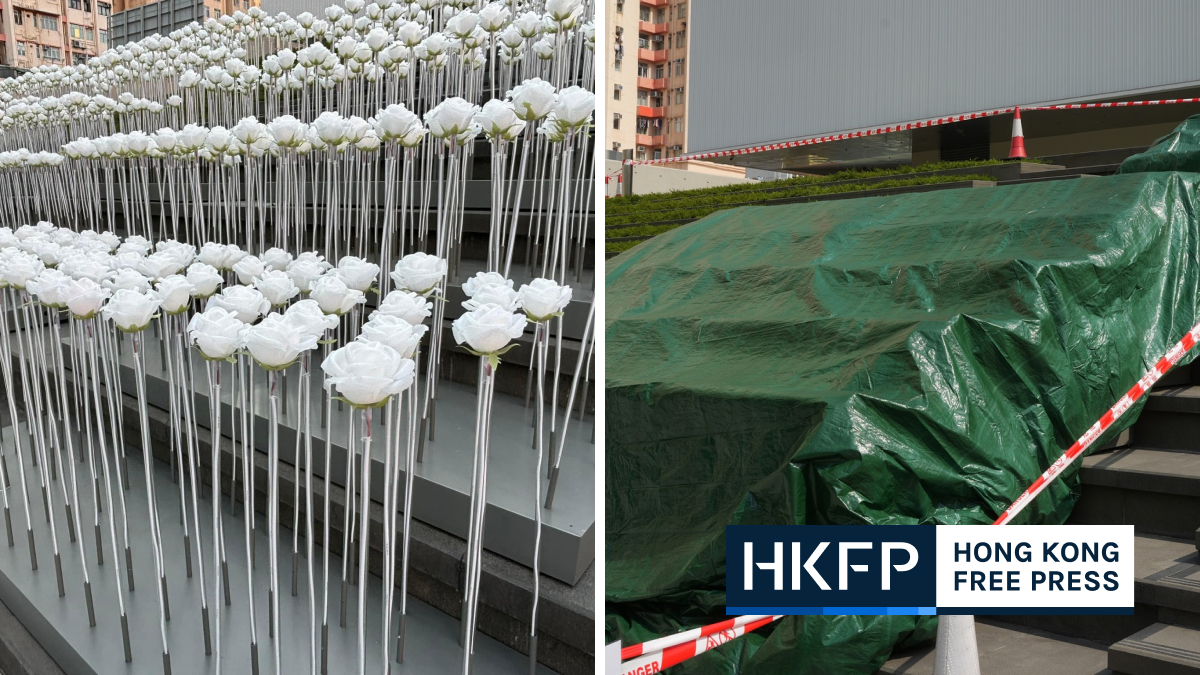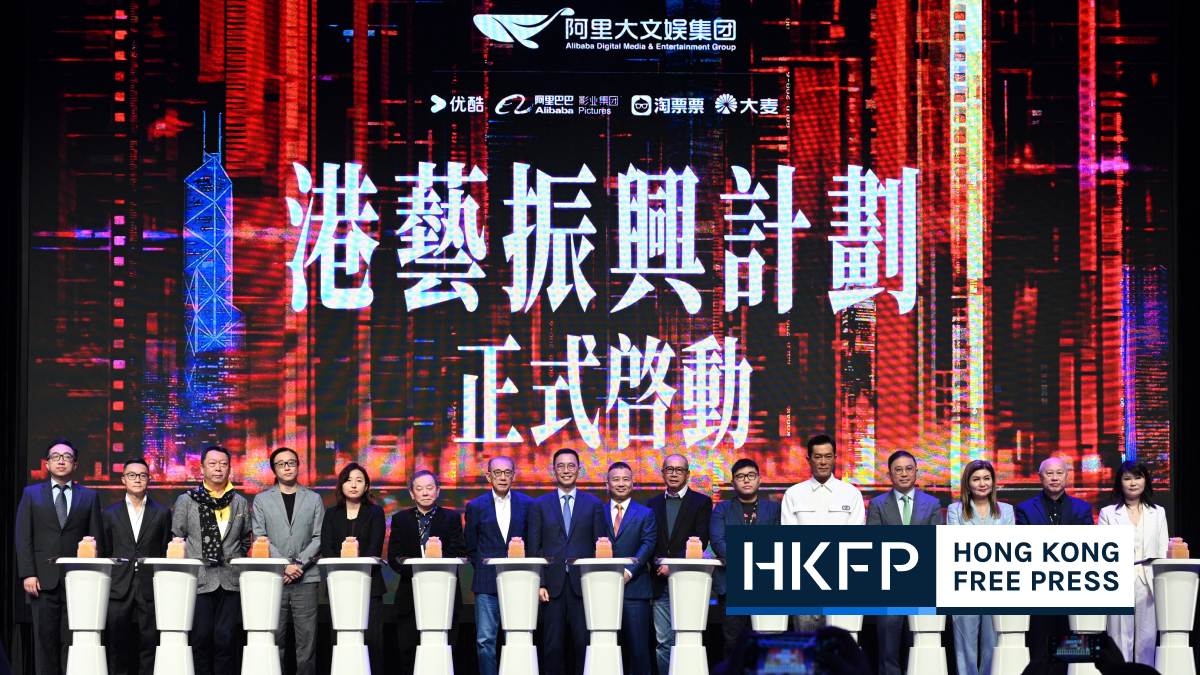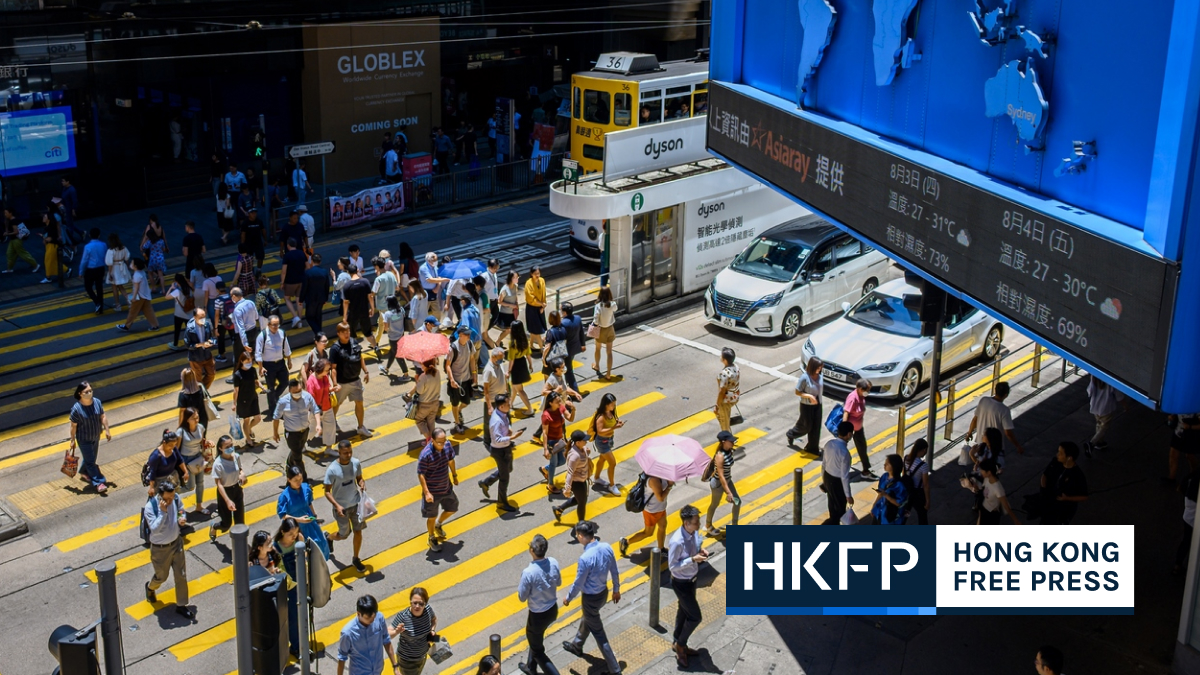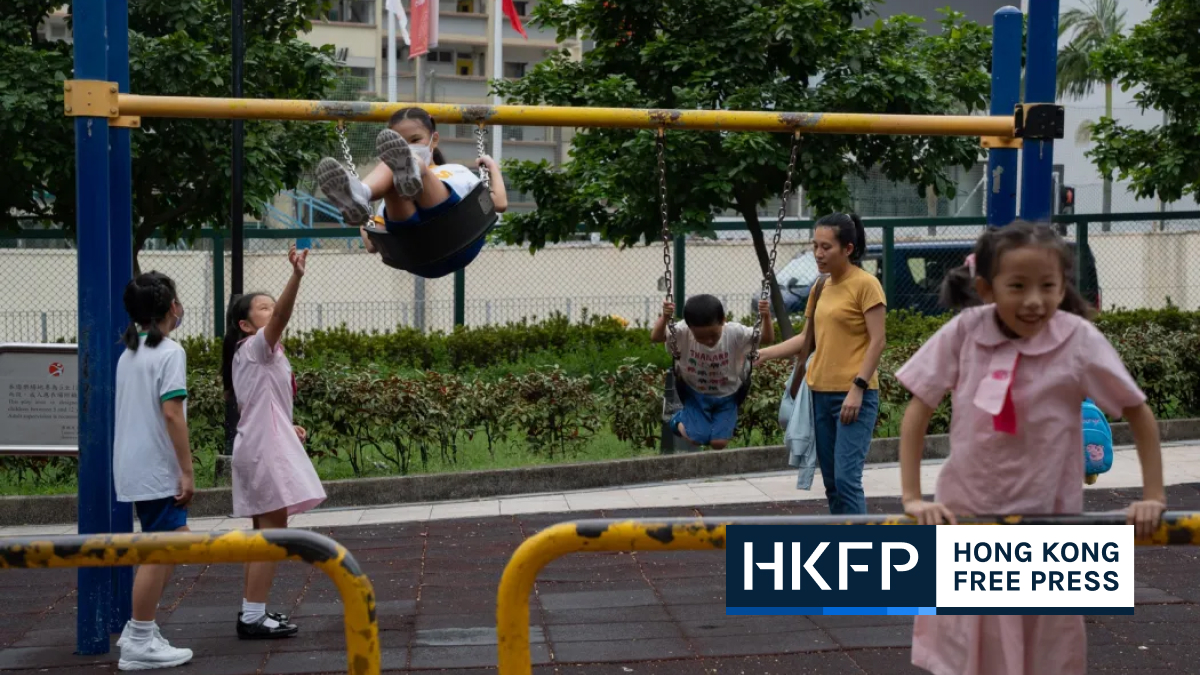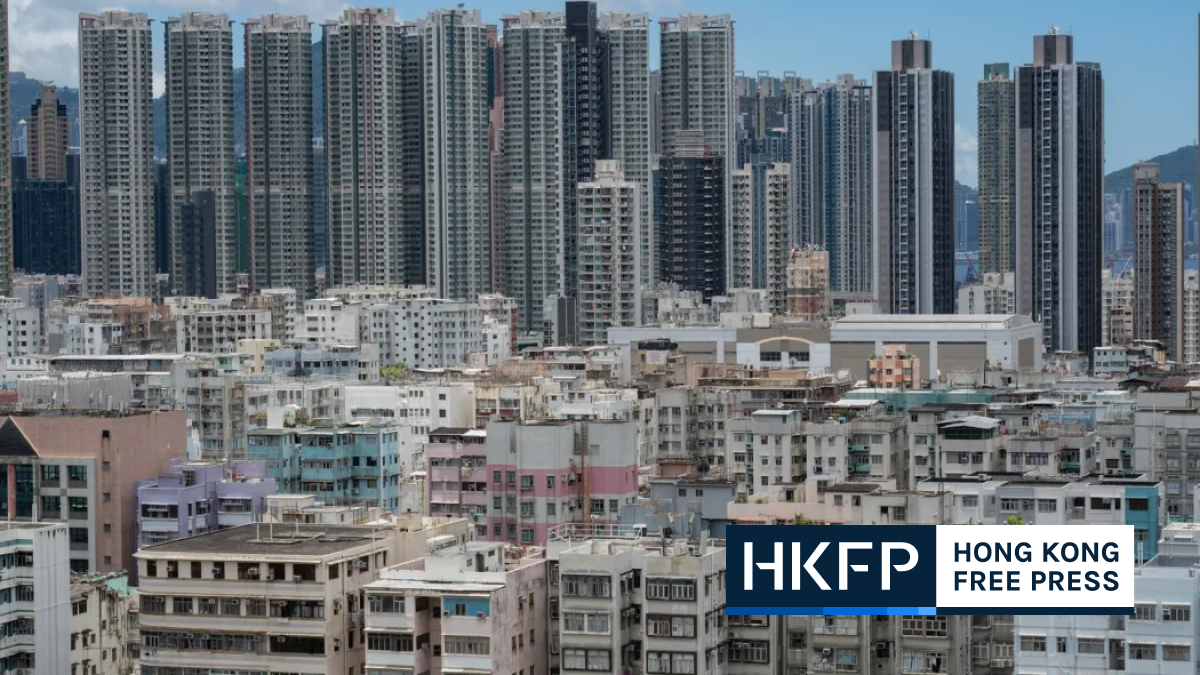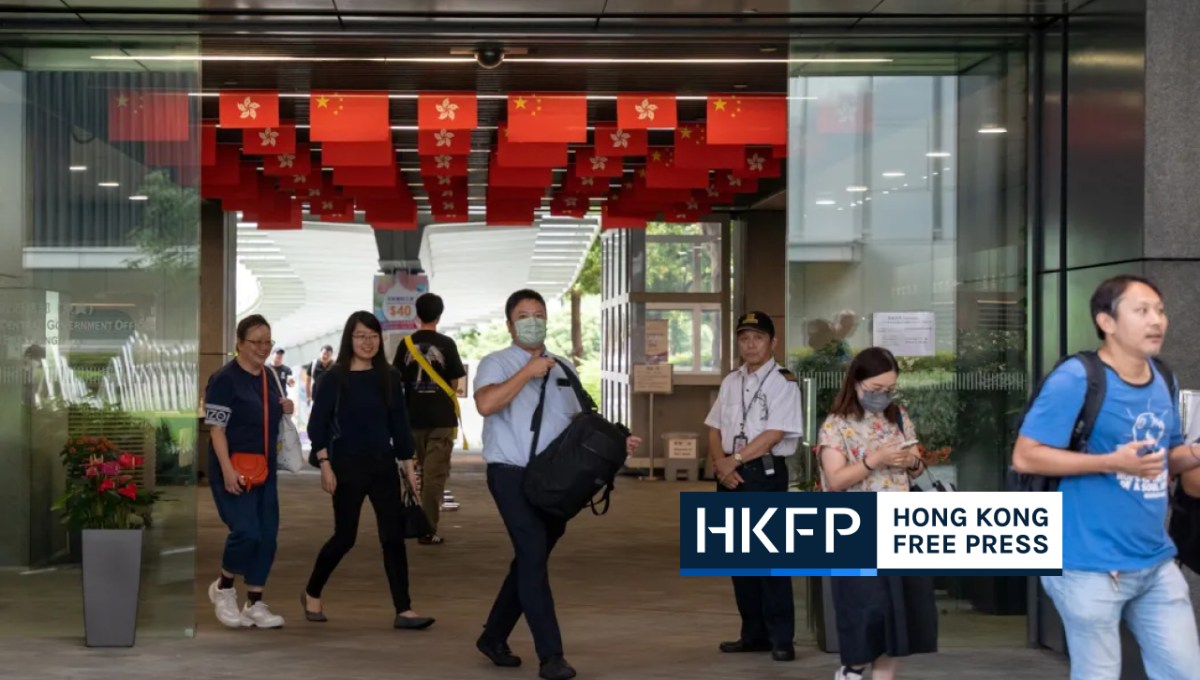Chief Executive John Lee has defended the government’s move to enact more security legislation, after vowing during Wednesday’s Policy Address to roll out Article 23 of the Basic Law next year.
“The 2019 riots, black violence, and the attempted colour revolution happened because of the obvious vacuum situation on legislation regarding national security,” Lee said during a press conference on Wednesday.
“We have suffered badly. We have to learn this through pain… The Hong Kong national security law also requires Hong Kong to enact Article 23 as quickly as possible.”
See also: What is Article 23? Hong Kong’s homegrown security law finds itself back in the spotlight
The controversial legislation stipulates that the government shall enact laws to prohibit acts of treason, secession, sedition and subversion against Beijing. It failed in 2003 following mass protests and was not tabled again until after the onset of the separate, Beijing-imposed security law in 2020. Pro-democracy advocates fear it could further limit civil liberties.
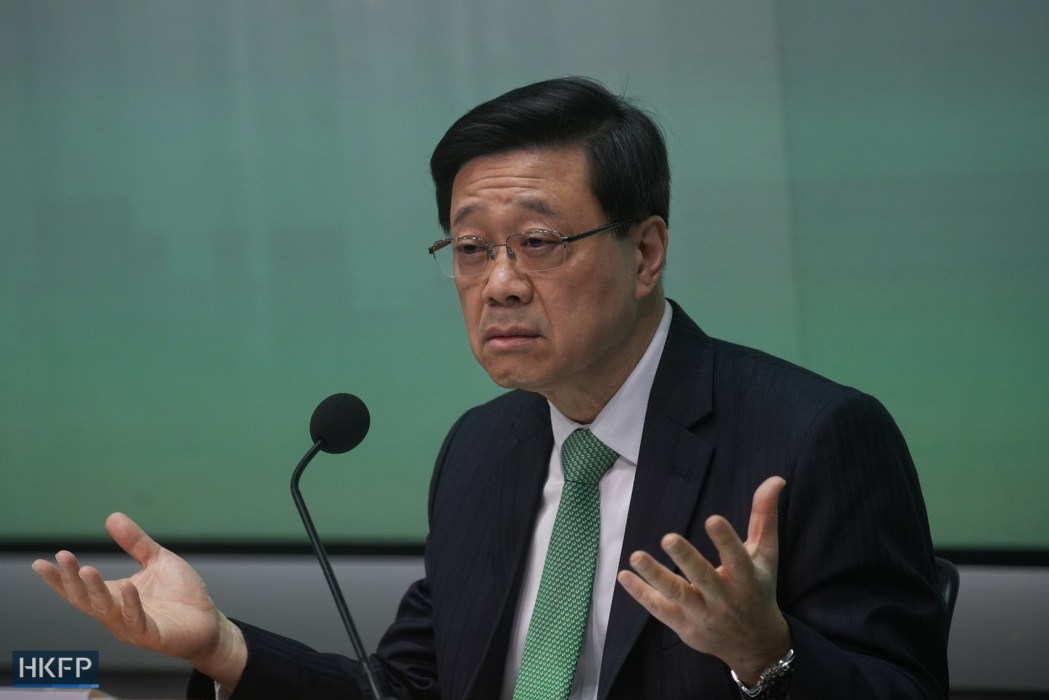
The 2020 security law was imposed after months-long protests erupted a year earlier over a since-axed extradition bill. They escalated into sometimes violent displays of dissent against police behaviour, amid calls for democracy and anger over Beijing’s encroachment.
‘Foreign forces’ claims
Security chief Chris Tang claimed in August that foreign groups were behind the 2003 demonstrations. In an “unlisted” YouTube video, Tang alleged that “external forces” cultivated local opposition groups to organise the mass rally, saying “the anti-Article 23 legislation protest, at that time, was a trial run for them.” He did not provide evidence for his claims.
When challenged by HKFP as to whether he agreed, Lee said on Wednesday that the protest 20 years ago was due to failure to understand the legislation.
“We did not succeed in 2003. I would say this was because of, in some way, not being able to make people understand very properly what Article 23 can do for them in a positive way. I think after the 2019 harm and troubles, people understand how national security is an important factor for stability, for continuing our normal day-to-day life,” he said.
Support HKFP | Policies & Ethics | Error/typo? | Contact Us | Newsletter | Transparency & Annual Report | Apps
Help safeguard press freedom & keep HKFP free for all readers by supporting our team




